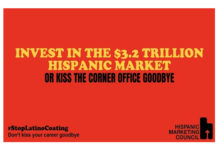Despite some recent backlash towards corporate inclusion efforts, employees around the world confirm that having a diverse, equitable and inclusive workplace is important to them, revealed a new study. They also want their leaders to be more vocal about the steps they’re taking to get there.
The survey of 6,800 employees in 11 countries carried out Catalyst, the global non-profit promoting gender equity and workplace inclusion, revealed that 93% are calling for organisations to candidly detail to their teams how they are creating more equitable workplaces. It also found that three-quarters (76%) of employees agree that organisations should be actively engaged in efforts to create a diverse and equitable workplace.
How leaders and organisations talk about their diversity efforts has a direct impact on employees, noted the study. Messaging about diversity, equity, and inclusion (DEI) matters now more than ever before. The way organisations frame their commitment to diversity to employees is critical because DEI is being challenged across the globe, and an organisation’s positioning on this topic signals their priorities.
DEALING WITH DEI BACKLASH
As a result of the backlash around the globe towards corporate inclusion efforts, some organisations are considering taking a step back from their DEI efforts, and toning down their DEI message. For example, the 2023 US Supreme Court decision on affirmative action and other state-specific legislation restricting DEI funding and programming may convince senior leaders to water down their DEI commitments.
In addition to cultural and political pushback around the world, thought leaders are sending conflicting messages to organisations and DEI practitioners about what’s best.
“In this polarising moment when efforts to build equitable workplaces are under attack, it’s significant that employees want to see proactive steps from leadership, along with clear communication regarding the actions being taken to create a diverse workplace where all employees can belong, contribute, and succeed,” said Emily Shaffer, a senior director of research at Catalyst and lead author of the report. “Workplace inclusion is not a game with winners and losers; it’s a universal win, fuelling creativity, elevating performance, and creating workplaces where all talent can thrive.”
THE BUSINESS & FAIRNESS CASE FOR DEI
The survey also examines how organisations make the case for an equitable workplace. It finds the vast majority (76%) discuss both the business case, meaning how it affects the bottom line, together with what is sometimes referred to as the “fairness” case, explaining why these efforts are the right thing to do.
More importantly, the survey shows that when the right thing to do is emphasised over the business’s bottom line, employees are more likely to see their organisations as meritocratic and fair, to experience inclusion, and plan to stay there. The report also provides practical suggestions on how organisations can clearly discuss their DEI practices with their employees.
“These first steps are simple but significant,” stated Shaffer. “Organisations should start by making sure their diversity, equity, and inclusion practices align with their culture and core values; by examining if their messaging to employees clearly reflects why they’re engaging in DEI practices; and by understanding their audiences. Going back to the basics allows companies to demonstrate their commitment in a way that resonates with employees, leaders, and stakeholders.”
Click here to download a copy of the full report.




































